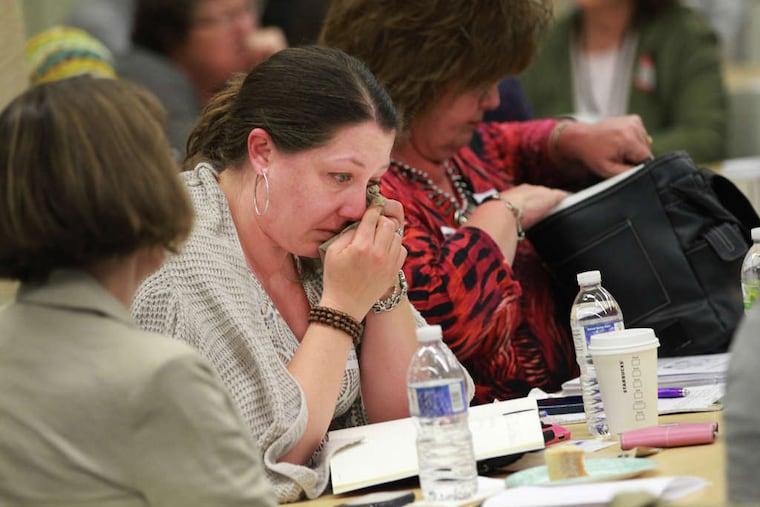Kevin Riordan: Fixing the wounds in Camden's urban war zone
After a young woman in her neighborhood committed suicide in April, Pamela Robb vowed to attend the Camden Trauma Summit.

After a young woman in her neighborhood committed suicide in April, Pamela Robb vowed to attend the Camden Trauma Summit.
"If one of us is hurting, we're all hurting," said Robb, 58, the tenant association president at the Northgate II high-rise in North Camden.
A Camden resident for a half-century, Robb was among 150 citizens, clergy, and public health and safety professionals who gathered Monday at the Cooper Medical School of Rowan University.
The relentless toll that violence exacts on Camden, a big small town that's been called America's most dangerous city, was the focus of the summit.
The lively event offered a mix of sociology, statistics, and personal testimony. The talk was all about how people, children in particular, sustain psychological injuries from living in a war zone. Organizers said their goal was to educate providers and others to go beyond treating symptoms and reach root causes.
"Camden is a place of pain," said the Rev. Jeff Putthoff, who heads Hopeworks 'N Camden, a youth development agency. "People are wounded, and they need rehabilitation to heal. If someone has a bad back, we don't just tell them, 'Get over it.' "
Hopeworks helped organize the summit with Stop the Trauma on People, a grassroots group best known for the crosses it placed outside City Hall to memorialize the killings of scores of people last year in Camden.
I spent the morning circulating around the conference room, where groups of six and seven shared tables named for Camden streets. The proceedings offered persuasive evidence of the physiological, psychological, and moral toll violence exacts on individual and community alike.
"I know there are a lot of people in here who have taken a traumatic journey and may still be healing," said Mary Height, a lay minister at Life Assembly Ministries of Christ.
Standing to speak, she apologized for being emotional. But no one seemed to mind.
"It's imperative that we step outside ourselves, and empower our children . . . to heal and raise up Camden," Height declared, as the room erupted in applause.
"Camden is a traumatized community," said Sandra L. Bloom, a physician who is an associate professor in Drexel University's School of Public Health and was the keynote presenter.
"What's important is that we now have a lot of science about the impact of trauma and adversity on children, families, and organizations and communities," she said.
But like, say, knee replacement patients who are expected to attend physical therapy, Camden's walking wounded need to take responsibility for themselves, too.
"This isn't at all about 'being soft' on people," Bloom said. "It's about changing your expectations as a helper, so you can be more compassionate, while expecting [a client] not to keep doing the things that are getting them into this mess.
"Everybody can do their little bit. Even if it's just saying a kind word to somebody. Some ordinary thing. You never know with another person what's going to change the trajectory of their life. Ultimately they have to do it."
Said Robb, a deacon at Christus Lutheran Church, "We need to learn how to fix this. And this summit is a great step."